Which slopes are you hoping to hit this winter? We don’t need to tell you any more than you already know about those A-list resorts lining Colorado’s I-70, or Whistler, Mt. Bachelor, Big Sky, and Jackson Hole with the capacity crowds and lift tickets often north of $200. But if you’re looking for some real bargain, off-the-beaten-run options that offer the same powder, more untracked turns, and none of those lift lines, it may be time to aim your boards at small mom ‘n pop ski resorts and areas.
Here’s a roundup of the best small ski resorts you’ve probably never heard of. While most of the big-name resorts have jam-packed parking lots, long waits at the chair, and slopes as crowded as Central Park, there’s a simple, savvy solution. Head for these hill alpine gems—and ski like a savvy local.
Best ‘Mom ‘n Pop’ Ski Resorts to Avoid the Crowds
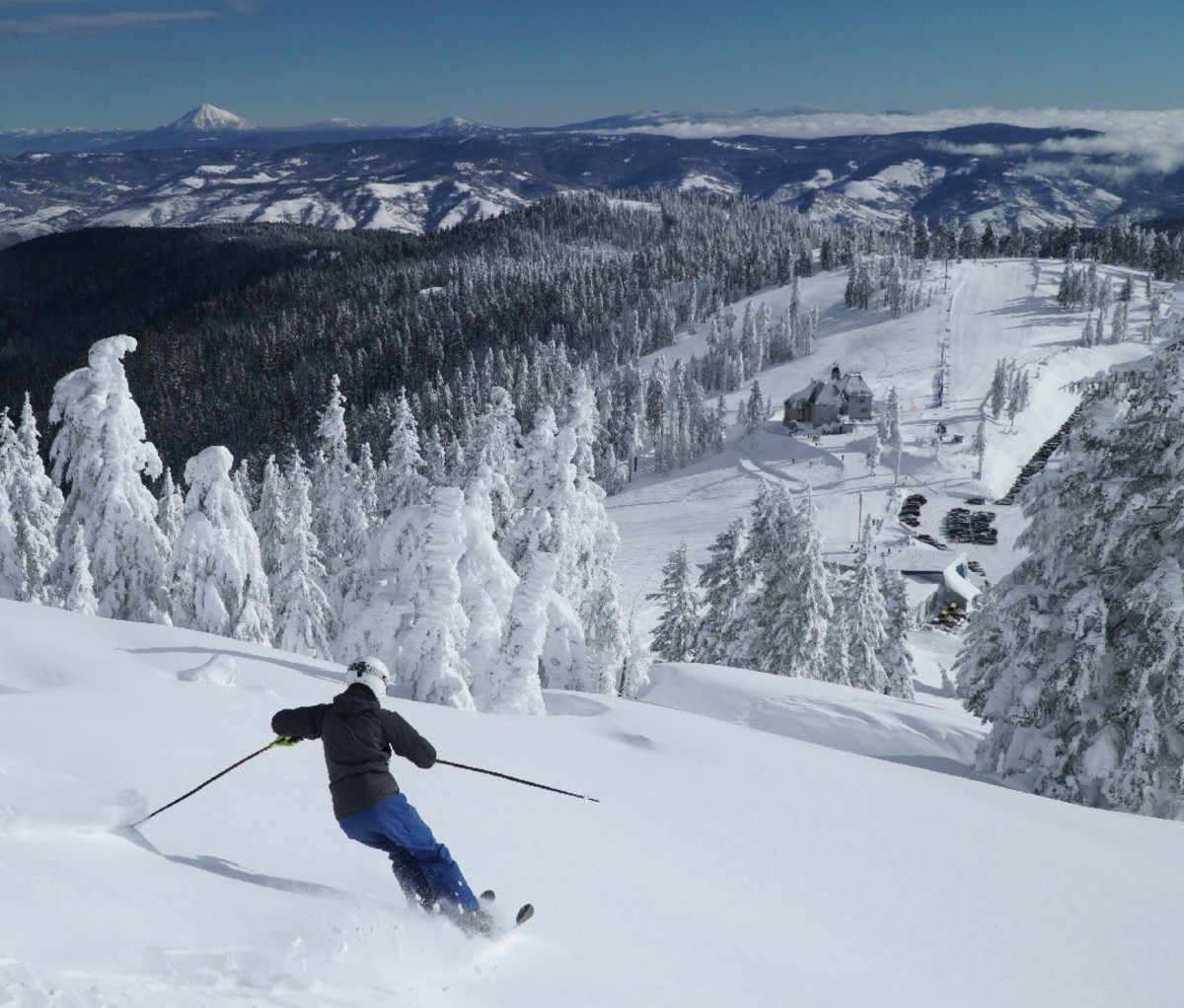
1. Mt. Ashland Ski Area: Ashland, OR
If you can’t make it to the Alps this year, try Mt. Ashland. On paper, the 240-acre resort might look small, but with a summit elevation of 7,533-feet, this is real mountain skiing. And, if you buy a lift ticket ($64) and aren’t satisfied within the first 45 minutes of skiing, you can turn it in for a voucher for another day. There are five lifts, 44 runs and 265 inches of snowfall per year. That’s plenty to keep all levels of skiers happy, but if you’re just learning how to ski, Mt. Ashland is ideal. The beginner area is separated from the rest of the terrain, so newbies can practice turns without the fear of being plowed over by faster skiers. The area is open Thursday through Monday, with twilight skiing Thursday and Friday nights through mid-March (aka party-time for neighboring Southern Oregon University students). Ashland (home to the world-renowned Oregon Shakespeare Festival) is just minutes away from the hill, with a picturesque downtown, well-priced lodging, and excellent restaurants.
Learn More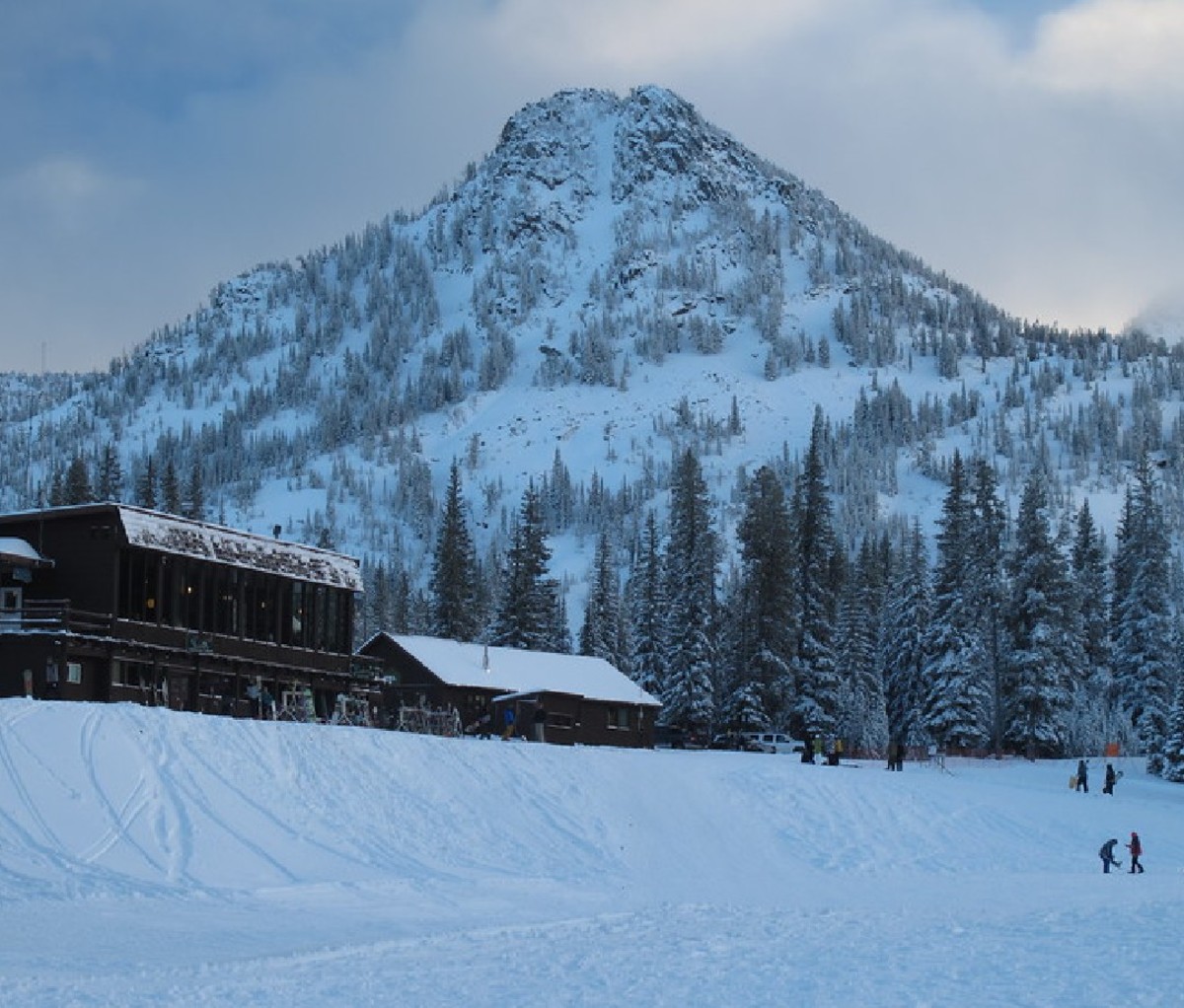
2. Anthony Lakes Mountain Resort: North Powder, OR
This could be Oregon’s best-kept secret. Anthony Lakes Mountain Resort, located in eastern Oregon, is home to some of the best powder skiing in the Northwest. Surrounded by the craggy Elk Horn mountains with a summit pushing 8,000-feet, the ski area offers an action-packed 1,100 acres of skiing and snowboarding accessed by a single chair lift and T-bar tow. The vertical drop is 900 feet, which translates to a fun day whether you’re a beginner or expert. Lift tickets are $45 per day—and for $2,739, you and 11 of your friends can rent a snowcat (and driver) and spend the day exploring untracked powder. Stay in nearby Baker City or drive just under an hour to The Lodge at Hot Lake Springs to soak in one of the biggest hot springs in the Northwest and catch a movie. Ski Anthony Lakes is open Thursday through Sunday.
Learn More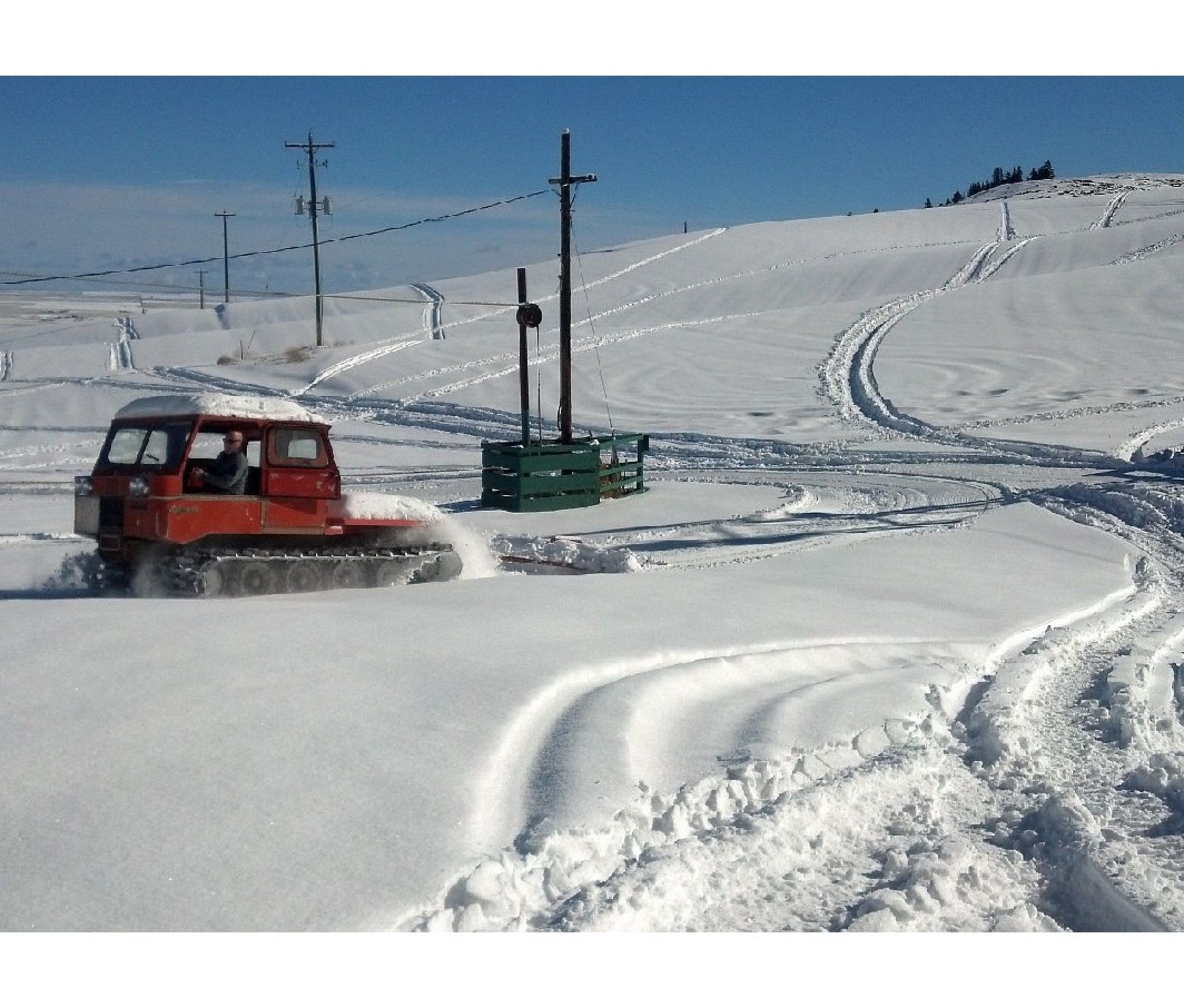
3. Badger Mountain: Waterville, WA
Deep in southern Washington on the Columbia River Plateau, Badger Mountain has the least expensive lift tickets in the country. This tiny, volunteer-operated ski area near Richland, WA, is perfect for beginners. Lift tickets are just $10 per day, and for an extra seven bucks you get a great burger, chips, and soda for lunch. Two rope tows and a T-bar serve three main runs with extra room for exploration. The small lodge has a great community fire pit—plus there’s some very fun family sledding here too.
Learn More4. Bogus Basin: Boise, ID
There’s nothing “bogus” about this ski area’s seriously legit terrain and free powder refills when the snow is good. Bogus Basin (the moniker comes from the 1860’s gold rush days) is just 16 miles from Boise. Full-day lift tickets are $73—but the real bargain is night skiing. You can ski from 3-10 pm for just $34 or buy the “Twilight Season Pass” starting at $129. The mountain has 10 lifts that serve 80 runs across 2,600 acres with an impressive vertical drop of 1,800 feet. While there’s good terrain for beginners and experts, Bogus’ topography lends itself to the intermediate skier. There’s also a well-marked skinning track for people who want to get in laps before the lifts open—and slope-side condos for ski-in/ski-out convenience.
Learn More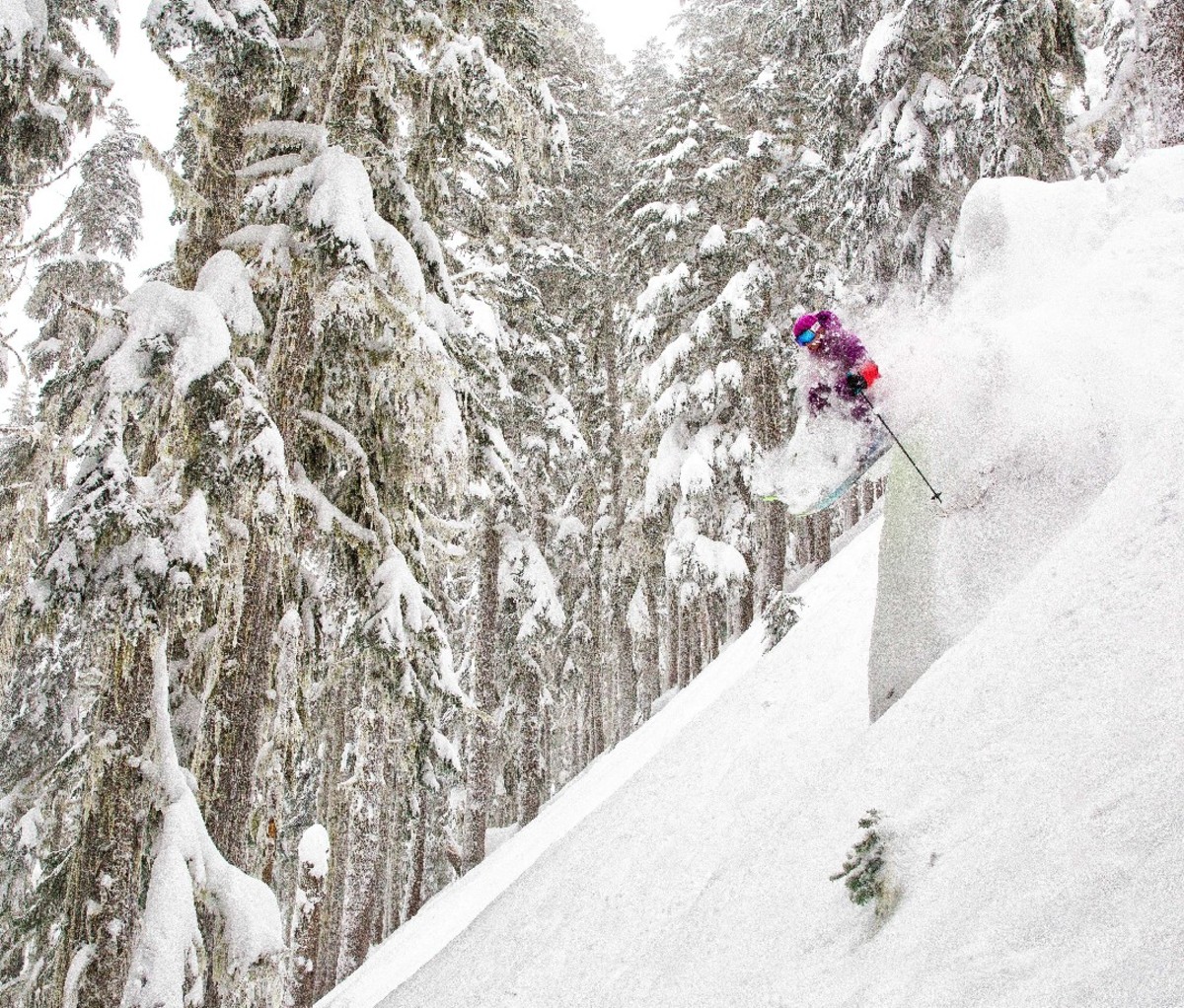
5. White Pass Ski Area: Naches, WA
There’s a reason this area is called White Pass. Deep in the heart of Gifford Pinchot National Park, just a dozen miles from Mt. Rainier National Park, White Pass boasts more than 350 inches of snow a year. Views of Mt. Rainier and the surrounding Washington Cascades are every bit as spectacular as the lack of lift lines. There are 1,400 acres of skiable terrain, but the area seems much bigger, probably due to the whopping 2,000 vertical feet from summit to base. There is enough steep terrain to keep experts happy, and many a mellow long run (one of them is 2.5 miles long) winding through forests and glades. The mid-mountain lodge, called High Camp, is a prime spot for an afternoon beer and burger. Stay at the White Pass Village Inn for a terrific ski in/out experience. Lift tickets are $73 a day for adults, with budget friendly multi-day options.
Learn More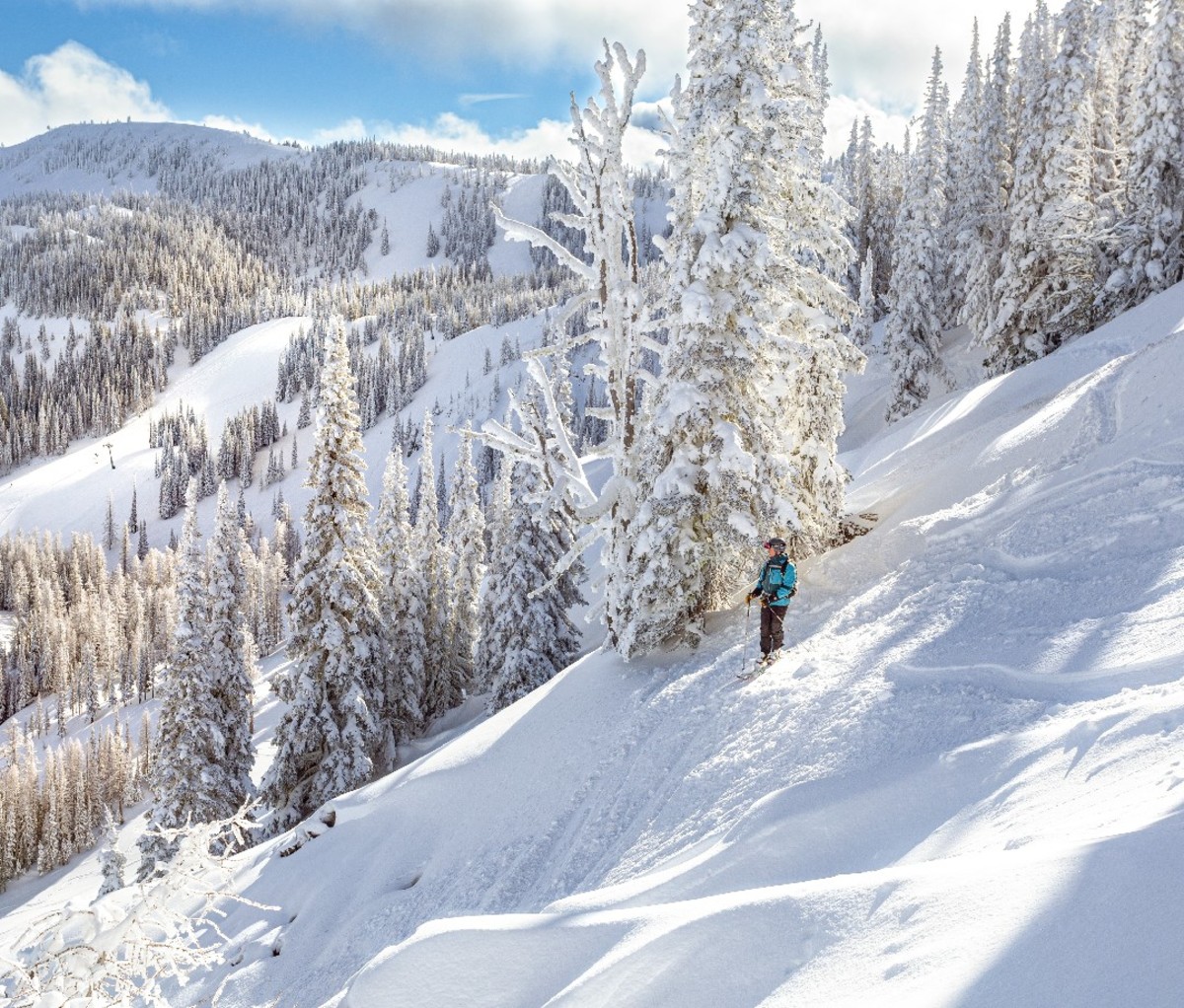
6. Mission Ridge Ski & Board Resort: Wenatchee, WA
Nestled on the east side of the Washington Cascades, just 13 miles from Wenatchee, WA, Mission Ridge is one of the true “hidden gems” in the Pacific Northwest. The ski area is old-school, with wood-hewn lodges, great groomers, steep chutes, and zero lift lines. There’s plenty of terrain spread over 2,000 skiable acres and 2,250 feet of vertical. Consider Mission Ridge a world-class ski area that the rest of the world hasn’t discovered. The area boasts light, dry powder that falls fast and furious, followed by spectacular bluebird days. There’s a free ski bus from Wenatchee that makes seven daily round trips. Our favorite feature is the $99 dinner pass at the Ka-Wham Café—good for a meal every time you ski during the season. And don’t miss the excellent night skiing.
Learn More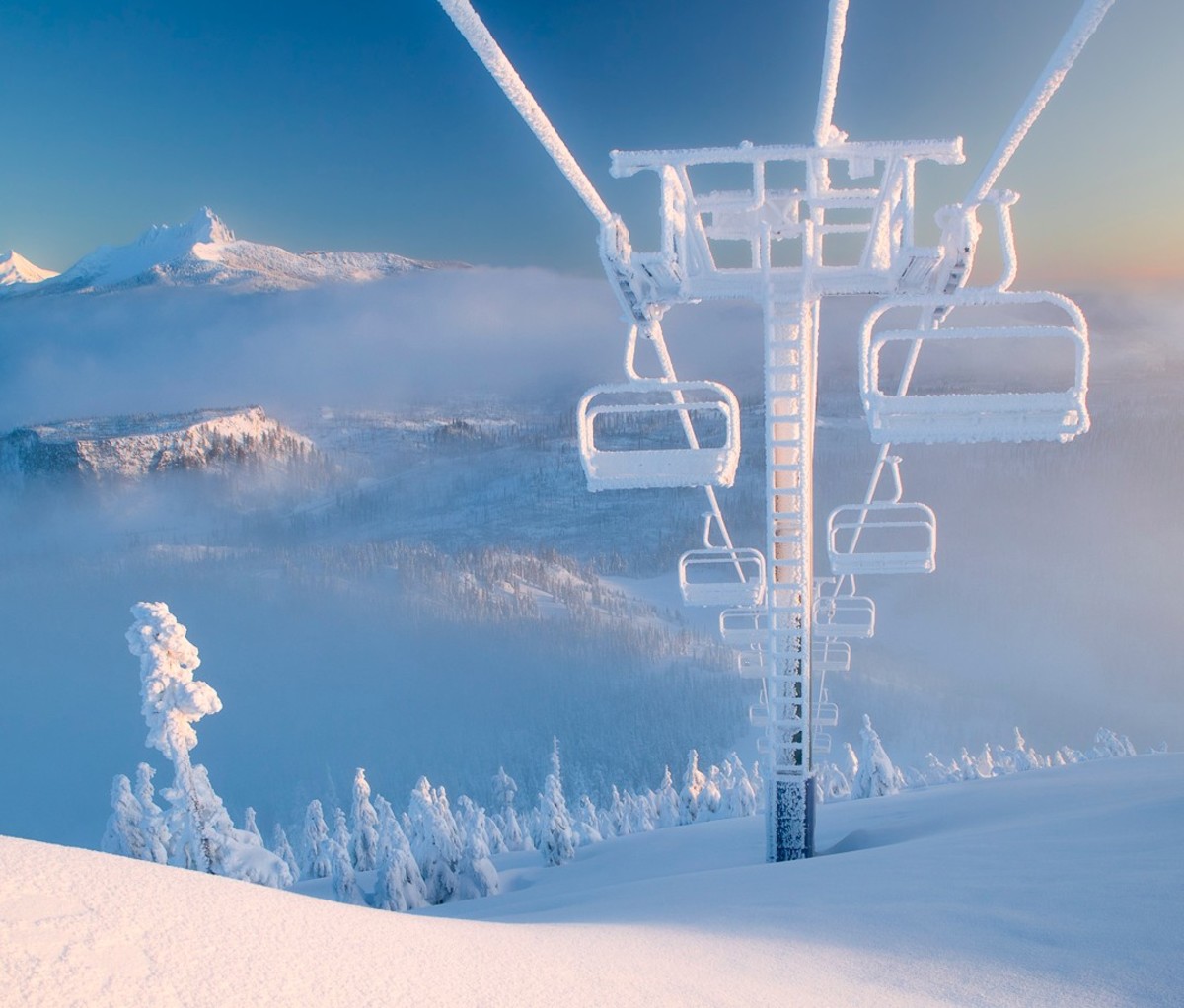
7. Hoodoo Ski Area: Sisters, OR
With many of Oregon’s larger ski areas rife with crowded parking lots and long lift lines, Hoodoo punches way above its weight class in the fun department. Tucked into the Oregon Cascades, Hoodoo’s old-school vibe is as genuine as it gets. Chances are you’ll know all the lift operators’ names by the end of the ski day. Situated on the top of Santiam Pass, between Bend and Salem, Hoodoo offers five lifts, 800 skiable acres, and just over a 1,000-foot vertical drop—with plenty of backcountry skiing nearby in the surrounding Deschutes National Forest. With an average of 450 inches of snow each season, you’re pretty much guaranteed good turns. Day passes are $65 for adults, with night skiing (3:30-9pm) only $35. The quaint village of Sisters is less than a half-hour away and has first-class lodges and B&B’s as well as fabulous local drinking holes like the Three Creeks Brewing Co.
Learn More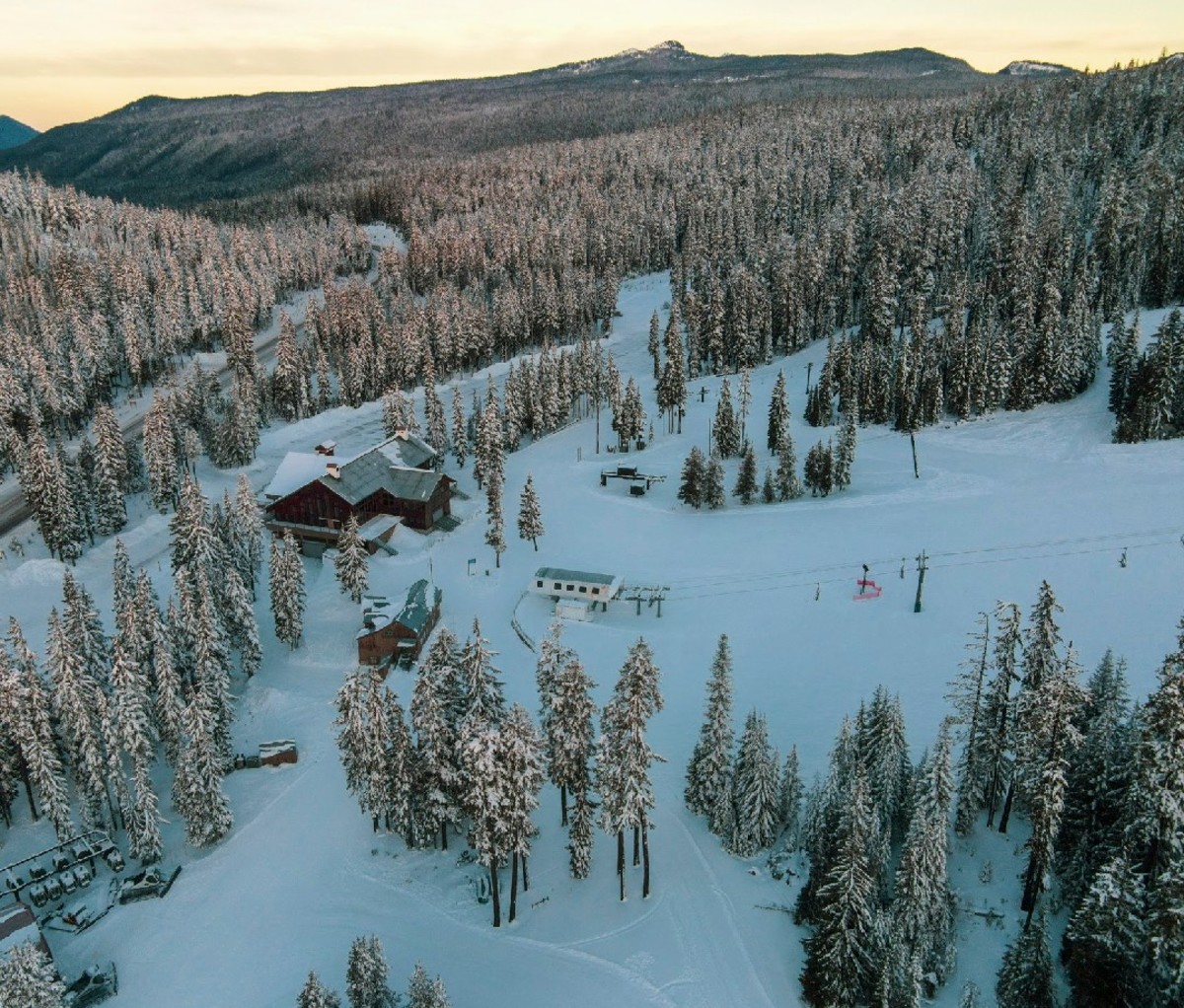
8. Willamette Pass Resort: Crescent Lake, OR
Like so many mom ‘n pop ski areas in the Pacific Northwest, Willamette Pass has plenty to offer. A favorite day trip for University of Oregon students, the resort’s four ski lifts include Oregon’s biggest and fastest chair—a high-speed six pack that converts to a gondola for summer tours—and one surface lift that access 555 acres of fun. Willamette Pass also boasts the steepest ski run in Oregon, RTS—leaning at a 52-degree angle. There’s 1,563 vertical feet of skiing with 34 percent of the slopes rated “advanced,” 45 percent “intermediate” and 21 percent beginner. The Kaleidoscope/Perseverance Run takes you from the summit of Eagle Peak through more than two miles of trails back to the lodge. Adult passes are $66 per day, and all tickets must be purchased on-line.
Learn More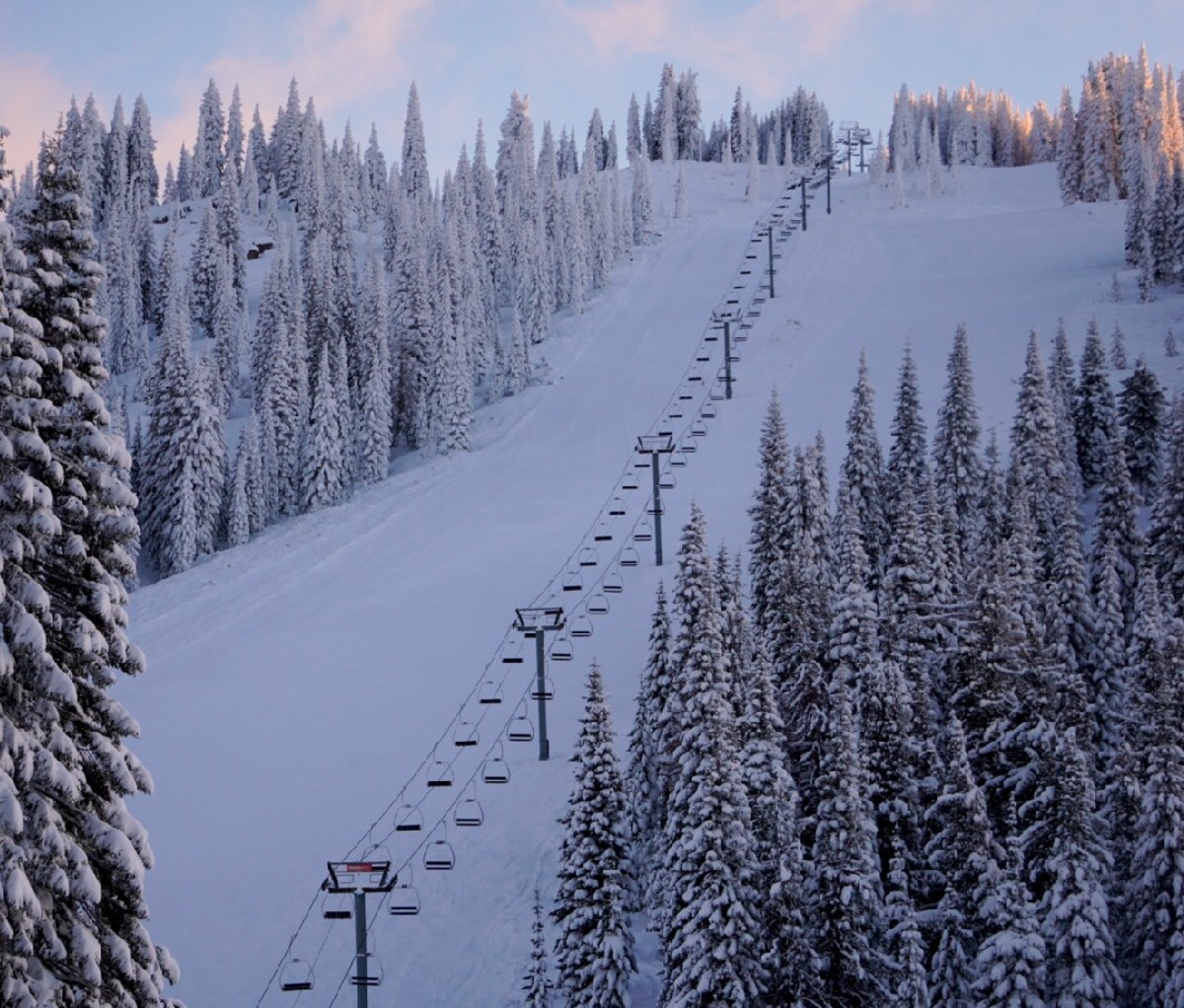
9. Mt. Shasta Ski Park: McCloud, CA
Perched at 14,162 feet, Mt. Shasta is arguably one of the most striking mountains anywhere. It’s a favorite for novice mountaineers due to an abundance of non-technical routes and relative lack of crevasses. But the big secret here is that when the snow is good, there are few better places for an affordable ski vacation. Mt. Shasta Ski Park is a full-service resort that offers plenty of cruisers and powder runs served by four lifts with state-of-the-art snowmaking equipment when needed. The summit of the ski area is 6,890 feet and there’s 425 skiable acres (with an additional 360 acres of accessible backcountry skiing). The slopes (and three terrain parks) will keep everyone happy here—from beginners to skiers with the need for speed. Adult tickets are $64 midweek, and $74 on weekends. Lodging options abound, from old-time mountain inns to modern hotels.
Learn More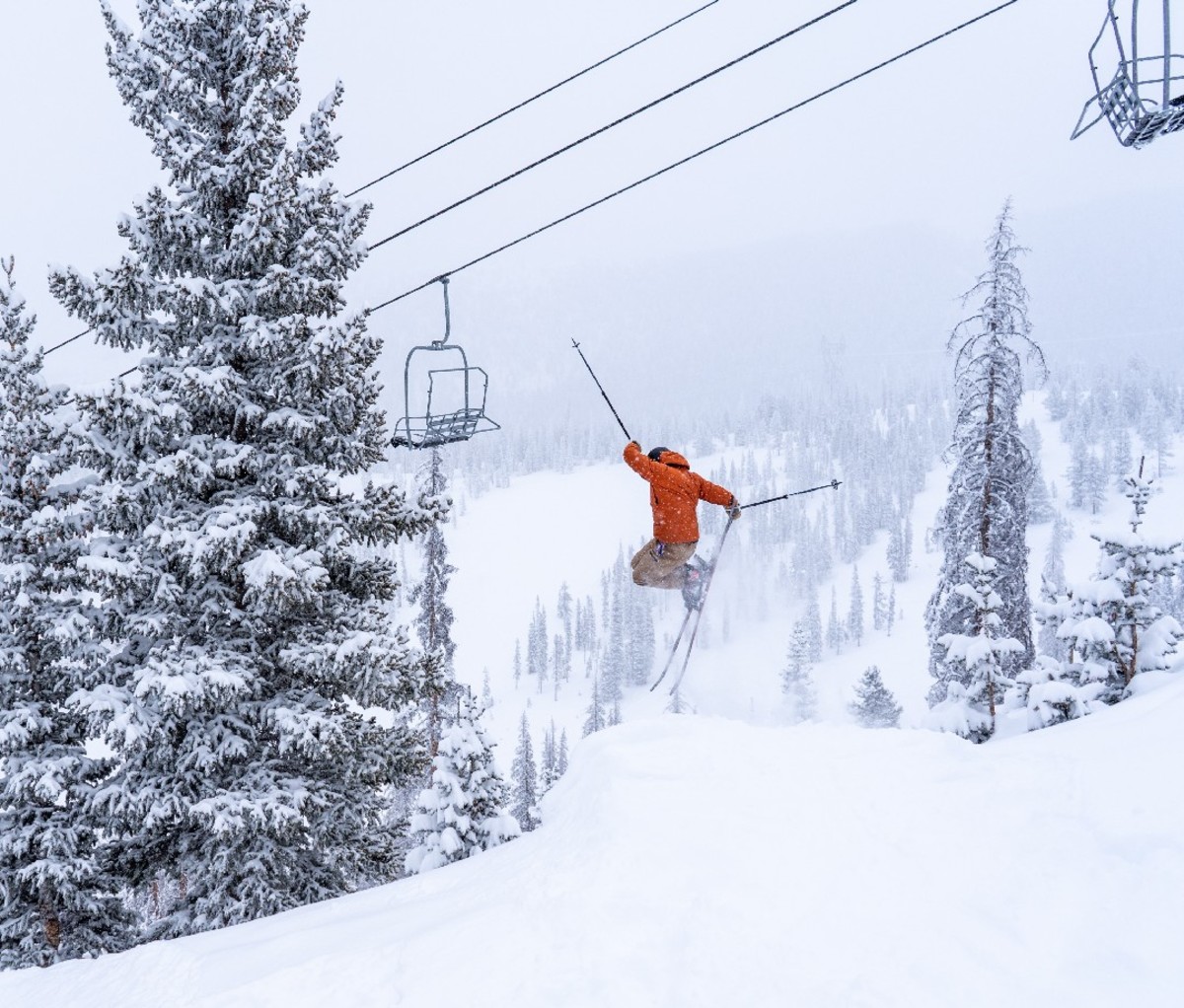
10. Monarch Mountain: Salida, CO
Dress warm when you ski Monarch. Perched at 11,923 feet (the base is at 10,790), the snow is deep, the air is thin, and the area just out of Salida, CO is legendary with amazing views to match. Monarch is a powder magnet with an average of 350 inches per year, served by seven lifts and 800 skiable acres. While there are some terrific green and blue runs, more than 30 percent of the ski experience is black diamond or double diamond—and for an extra challenge you can boot-pack into Mirkwood Basin for untracked bowl skiing. You’ll find a comfortable lodge, a welcoming pub called the Sidewinder Saloon, and an excellent ski school here without the crowds and attitude of so many of Colorado’s I-70 resorts. Lift tickets are $74 for adults (including a one-time RFID fee) with slight price increases on weekends and holidays. Expert skiers should consider ponying up for the snowcat option, especially if it’s a powder day. Cat Skiing is $525 per seat, or you can rent all 10 seats for $5,000. The price includes free equipment demos, avi gear rental, lunch, and an après ski beverage.
Learn More11. Wolf Creek Ski Area: Pagosa Springs, CO
With 420 annual inches, Wolf Creek boasts the most snow of any Colorado resort. It’s also one of the most environmentally friendly—using 100 percent renewable energy, and one of the few solar-powered ski areas in the country. The powder at Wolf Creek is legendary as is the easily accessed backcountry skiing. You can stay in-bounds on the property’s 1,600 acres and ride the resort’s seven lifts, historic Poma, and two “magic carpets”—or hike out of bounds and ski pristine bowls and glades. While Wolf Creek boasts 1,600 acres and a 1,604-foot vertical, the accessible backcountry terrain from the lifts is massive. Located in the San Juan mountains near the Colorado/New Mexico border and 80 miles from Durango. the remote nature of the resort is its own crowd control—maxing out at a 5,000-guest capacity. There’s plenty of lodging across all price ranges on both the east and west side of the pass. We’re partial to the Healing Waters Resort and Spa where a soak in the big hot pool is alone worth the trip. Keep in mind the summit elevation is 11,904 feet, so stay hydrated! Adult tickets are $82 ($92 peak rates).
Learn More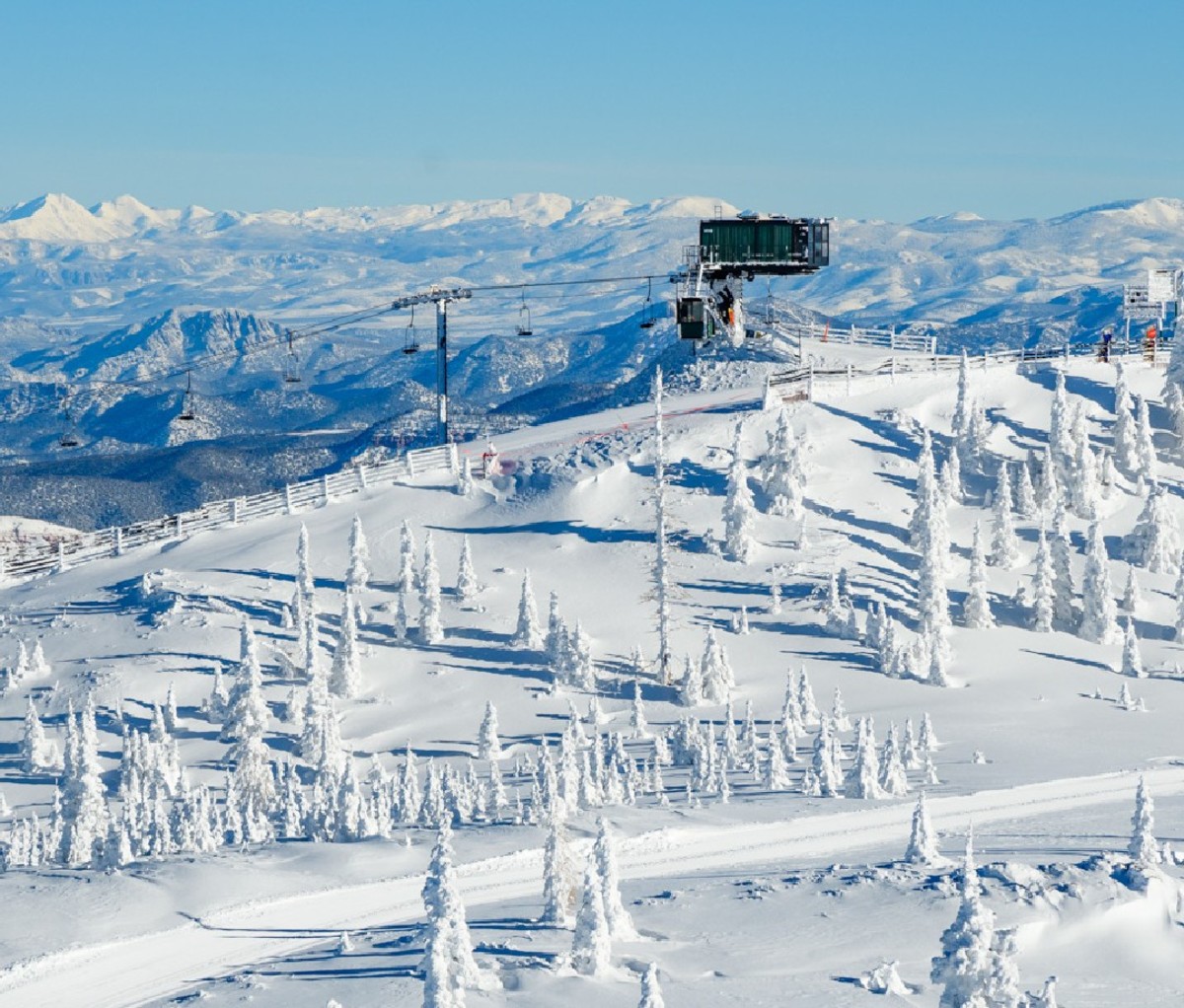
12. Brian Head Resort: Brian Head, UT
Pick the right day at Brian Head and you can get tickets for as cheap as $29. Peak season prices hover in the mid $70s, but most of the time you can ski for less than $60 per day. You’ll find less-expensive ski and snowboard lessons and rentals here than virtually anywhere else in Utah, and chances are you’ll never face lift lines. Terrain favors beginner and intermediate skiers, although experts can have fun on the sweeping groomed runs. The beauty of Brian Head is the scenery with panoramic views of Utah’s red-rock landscape. Stay at the resort or in nearby Cedar City for easy day trips to nearby Zion and Bryce Canyon National Parks. The resort, in Dixie National Forest in Southern Utah, has 650 acres spread over two mountains with spectacular views.
Learn More13. Whaleback Mountain: Enfield, NH
This small, non-profit ski hill in Enfield, NH reminds us of what skiing is all about—community spirit. There are about 30 trails and 85 acres of skiable terrain. It’s definitely old-school, with a single chair, T-Bar, rope tow, and magic carpet. For $10 you can get an uphill pass for skinning and skiing with AT or Telemark skis. Adult lift tickets are $50 on weekends and holidays and $40 mid-week. For $20 you can ski the last two hours of any day. Whaleback has snowmaking capability for 60 percent of the mountain, but with 110-inches of average snowfall the chances are you’ll get to enjoy a Mother Nature’s bounty. There’s night skiing too! Don’t miss the Tuesday night uphill Skimo races and Thursday night Adult Ski Race League.
Learn More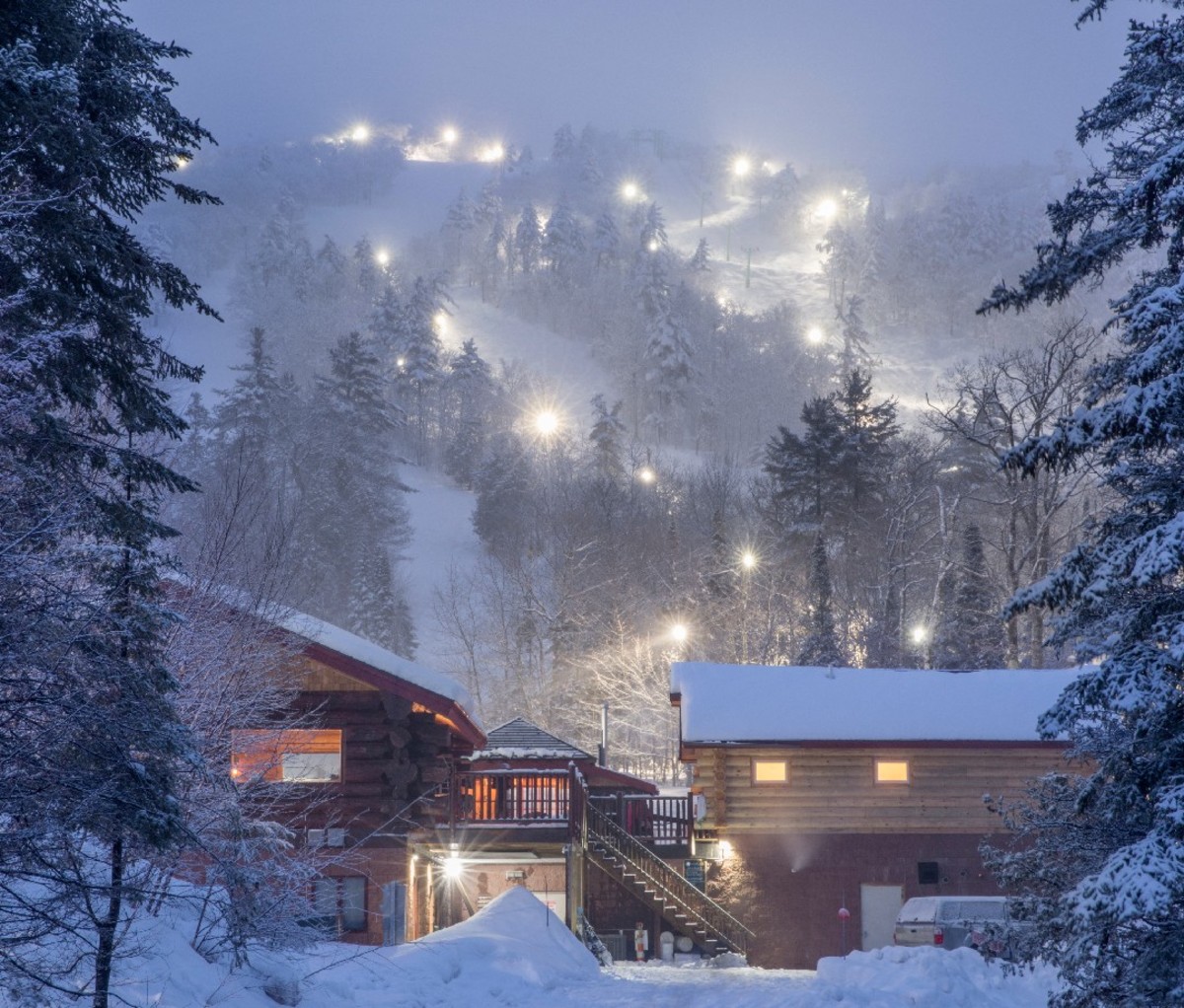
14. Mt. Bohemia Ski Resort: Lac La Belle, MI
This funky ski mountain in Michigan’s upper peninsula is recommended for advanced-intermediate and expert skiers. It boasts the biggest vertical drop in the Midwest (900 feet), with plenty of tree, chute, and cliff skiing—and some of the best lift-accessed inbound backcountry skiing in North America. There are two lifts and a bus—yes, on some runs there’s bus drop-off and pick up—and no grooming. There are 620 acres of skiable terrain with 90 percent being double black diamond runs. The resort boasts an average of 273 inches of snowfall annually, most of which is champagne powder. There are yurts and cabins to rent, a snowcat ski operation on Voodoo Mountain, and the Nordic Spa with cold and hot plunges, Finnish Sauna, and Eucalyptus Steam Cabin. Day rates for skiing are $85.
Learn More15. Whiteface Mountain: Lake Placid, NY
Whiteface doesn’t count as “Mom ‘n and Pop” but the former Olympic venue might be the most unheralded ski destination in the country. Weekends and holidays in the Adirondack town can be crowded so plan your trip for mid-week. That’s also when prices drop from $104 down to the $64-$69-dollar range. Whiteface has the biggest vertical drop east of the Rockies (3,340-feet), 11 lifts and 288 skiable acres, plus 35 acres of “off piste” wilderness terrain that can hold its own with anything out west. In addition to great skiing, Lake Placid has a terrific après ski scene with plenty of live music venues.
Learn Morefrom Men's Journal https://ift.tt/3GgJowK





0 comments